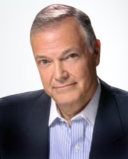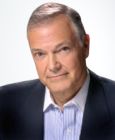Career
Changing Careers While Keeping Your Job
Your career in mental health can take many different paths.
Posted December 19, 2021 Reviewed by Gary Drevitch
Key points
- Mental health careers can span everything from academics to philanthropy.
- Established mental health professionals should always be looking for ways to broaden their reach.
- New mental health professionals should keep an open mind about what their future career may look like.
For anyone just beginning a career in mental health, things might seem fairly straightforward: We’ll just be seeing patients for the rest of our professional lives, in a varying combination of clinic positions, private practice and maybe teaching others eventually. Maybe we’ll develop a subspecialty or two like eating or anxiety disorders, child therapy.
As I reflect back on 50 years in the field, I know it doesn’t have to be just one way. For many of us, it should be much more varied. Mental health professionals have many options while still staying true to the core task of psychotherapy and psychoanalysis.
As a young professional myself once upon a time, I started my career with the idea that I would be a psychiatrist-psychoanalyst, seeing patients and teaching, and perhaps even chairing a department. I had an interest in family therapy and infant development that began in medical school, but these would be areas of practice, not major branches in my work. I was going to be an “academic psychiatrist” – and I got enough encouragement from my mentors to think that would be a satisfying path.
But that was only the beginning.
My professional career path — as perhaps yours will, too — took many turns, while my identity evolved through the various roles that caught my imagination:
Consultant. I became interested in community psychiatry during my residency, and began to consult at agencies and schools, including a group of Boston inner-city Catholic schools where the teachers were nuns and the counselors were Jesuits. (I’m not Catholic, but I admired their dedication and we got along well.) Consulting to agencies, schools, and communities throughout my career kept me in touch with the whole range of problems dealt with by mental health professionals.
Collaborator/researcher. Then there was the Vietnam War. I was lucky enough to be posted in Washington, DC, with a commission in the Public Health Service, stationed in an inner-city community mental health center. Here I saw patients, taught, and oversaw residents. It was here that I first experienced the A.K. Rice group relations conferences with fellow faculty members. These are American versions of group relations conferences that originated at the Tavistock Centre in London. That got me interested in going to London to take a kind of sabbatical at the Tavistock. This experience opened my eyes to the world of British object relations, a branch of psychoanalysis that offers a bridge between individual, couple, and family. I also found a place to continue school consultation and research on the plight of teens who left school early. My mentor at the Tavistock, John Hill, helped me shape a project that became the basis of a book: Between Two Worlds. Clinical research and collaboration became another cornerstone of my career.
Sex therapist. Coming back to Washington without a job, I lucked into a situation at Preterm, a women’s health clinic founded to help women seeking abortions before Roe v. Wade. The director hired me to launch a sex therapy clinic implementing Masters and Johnson’s revolutionary innovations in treating sexual disorders. Because I had child and adolescent training, this led me to write a second book on the families and children of couples with sexual dysfunction, The Sexual Relationship. I had not seen that coming.
Academic. A colleague from teaching family therapy was appointed dean of students at the new military medical school, The Uniformed Services University of the Health Sciences, located just outside Washington, DC. He recruited me to become the psychiatrist and psychotherapist for the students, which also meant teaching the med students and residents. So now, finally, I was an academic.
Author. After this experience, I decided I was interested in writing more advanced books about family therapy. My wife and I wrote our first book together, Object Relations Family Therapy. I have to say, I hadn’t seen myself as a writer, but there it was: a third book.
School Director. Then I applied for a new job as Director of the Washington School of Psychiatry, a venerable psychotherapy training institution in Washington, and suddenly I was an administrator – not now in a university department but at a continuing-ed institution. I found myself overseeing a number of programs and a clinic, worrying about the budget, and continuing to write and teach. But the school was certainly a community, so my group relations training and community experience helped a great deal.
Entrepreneur. In 1994, my wife and I left the Washington School to establish our own institution, The International Psychotherapy Institute, to reach out beyond Washington, DC, to therapists who didn’t have local access to quality continuing education. We worked with a group of talented colleagues to grow our idea and help it diversify. Because our students and faculty were scattered around the country and overseas, we were among the first to use technology to bring them together, and soon developed best practices in teletherapy and tele-teaching. During the Covid-19 pandemic, our institute was called on to share what we had learned over 20 years, in order to help colleagues who were suddenly forced into the use of technology for distance treatment and training.
International teacher and learner. I was still writing, often together with my wife, in what was euphemistically called our spare time. Then along came the unexpected opportunity of international experience. We had been traveling to many countries to teach, but now we were invited both to China and Russia to establish training programs; these were tremendous opportunities to deepen our understanding of the intercultural world. The engagement with the partners in these and other countries, with vast need and opportunity, widened my perspective beyond anything I would have thought possible when I began my career in the 1960s.
Philanthropist. Jason Aronson, our former publisher, offered to provide seed money for a venture at the International Psychotherapy Institute. We distribute free psychotherapy books worldwide, with Jill and I donating our time as the editors and Aronson himself as publisher. In the last several years, freepsychotherapybooks.org has given away more than 2 million downloaded books in more than 200 countries and territories. I am proud and honored to be part of this open-source philanthropic collaboration.
The bottom line: This is a career that has kept changing.
Through it all, I have continued to see patients, teach classes, and supervise students. These are still the activities that I love the most, whether here in the United States, abroad, or in cyberspace.
This is what it all comes down to: This is the richest of professions. And the best opportunities are likely to be the ones we never see coming. We can all keep growing through long and fascinating careers, bringing our core skills to a wide variety of opportunities and challenges in unexpected ways with enormous diversity and opportunity. I hope, for each of my colleagues, a long, diverse and fascinating career that each of you molds out of your passion and the courage to seize the opportunities that come your way.
There are so many places a career in mental health can take us.




